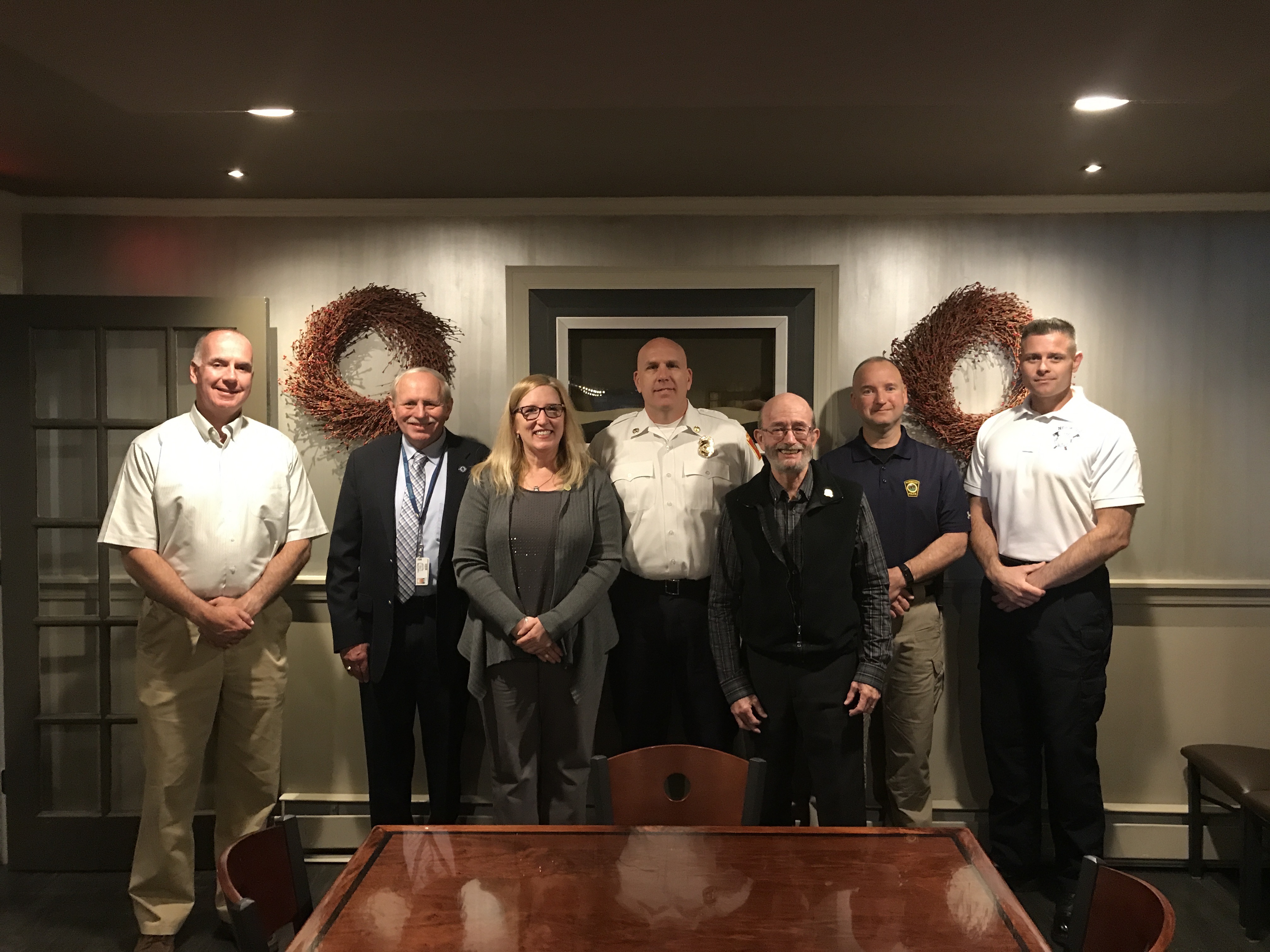If an unthinkable emergency occurs, who gets the situation under control, and how?
Those are the questions that members of the Central Norfolk Regional Emergency Planning Committee look to answer regularly, so that state and local officials will be prepared.
On Wednesday, May 22nd, state and local government officials and emergency responders, all representatives from participating municipal members of the Central Norfolk Regional Emergency Planning Committee, met to participate in a tabletop exercise at Restaurant 45 in Medway. This five-hour exercise focused on planning for a Hazmat emergency, enabling participating emergency operators in CNREPC towns to coordinate efforts and plan for actions should such an emergency take place. Towns that are part of the CNREPC include Medway, Millis, Norfolk, Norwood, Bellingham, Canton, Dedham, Medfield, Sharon, Walpole and Westwood.
The meeting included discussion of specialty teams, including Joint Hazardous Incident Response Team (JHIRT), Clandestine Laboratory Enforcement Team (CLET), a Maritime Incident Response Team (MIRT) and a Technical Support Unit (TSU), and participants worked on how to detect issues and identify capabilities among the towns. After a working lunch, participants viewed a demonstration of Hazmat Vehicles including the Technical Operations Module (TOMS) and Operational Response Units (ORU).
“The members of the Central Norfolk Regional Planning Committee have done an excellent job with their plans and exercises for hazardous materials. Their efforts help to make this region a stronger and safer place in which to live and to work,” says Doug Forbes, head of the Massachusetts Emergency Management Agency.
“These are great,” says Bellingham Deputy Fire Chief Mark Poirier, also the CNREPC Chair, who explains that the Department of Transportation requires towns to undergo HAZMAT education. “We have state HAZMAT team made up of firefighters throughout the state that will respond to any hazardous waste release on any individual or commercial property.” Local firefighters, he says, will be trained in the correct protocols for HAZMAT emergencies, and the local groups will be aware of resources, including equipment and technical support, available to them.

Issue Date:
July, 2019
Article Body:
